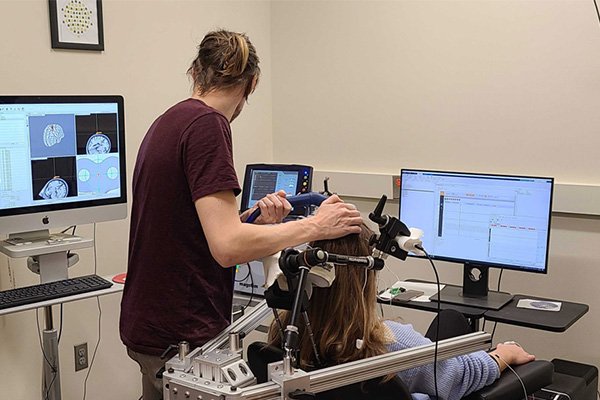New study reveals breakthrough in understanding brain stimulation therapies

March 18, 2024 — For the first time, researchers at the University of Minnesota Twin Cities showed that non-invasive brain stimulation can change a specific brain mechanism that is directly related to human behavior. This is a major step forward for discovering new therapies to treat brain disorders such as schizophrenia, depression, Alzheimer’s disease, and Parkinson’s disease.
The study was recently published in Nature Communications, a peer-reviewed, open access, scientific journal.
Researchers used what is called “transcranial alternating current stimulation” to modulate brain activity. This technique is also known as neuromodulation. By applying a small electrical current to the brain, the timing of when brain cells are active is shifted. This modulation of neural timing is related to neuroplasticity, which is a change in the connections between brain cells that is needed for human behavior, learning, and cognition.
“Previous research showed that brain activity was time-locked to stimulation. What we found in this new study is that this relationship slowly changed and the brain adapted over time as we added in external stimulation,” said Alexander Opitz, University of Minnesota biomedical engineering associate professor. “This showed brain activity shifting in a way we didn’t expect.”